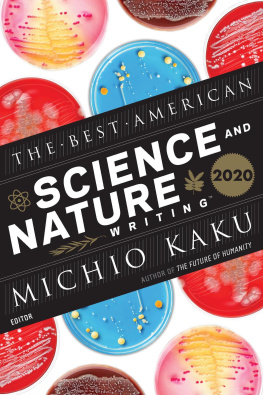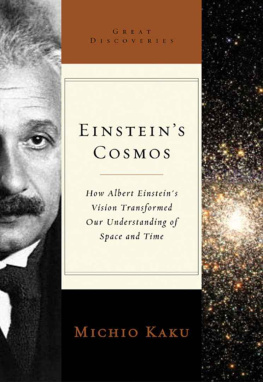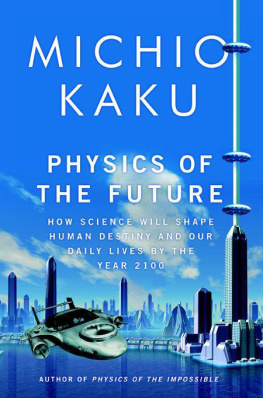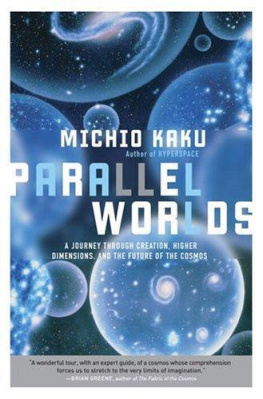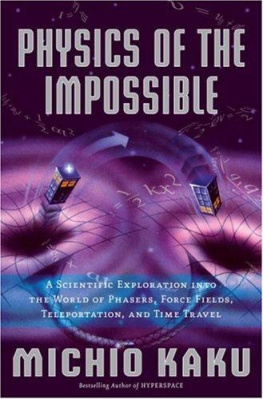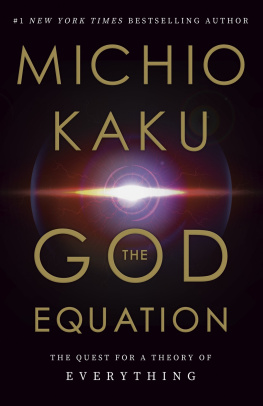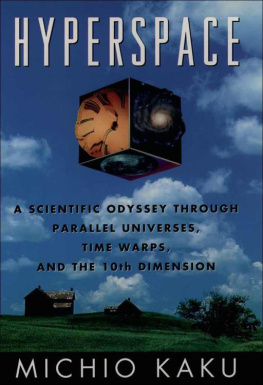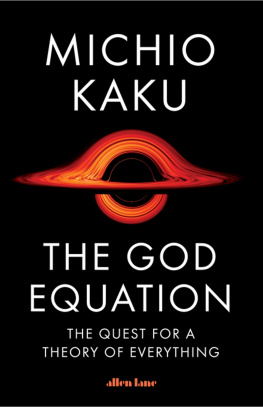Michio Kaku - The Best American Science and Nature Writing 2020
Here you can read online Michio Kaku - The Best American Science and Nature Writing 2020 full text of the book (entire story) in english for free. Download pdf and epub, get meaning, cover and reviews about this ebook. year: 2020, publisher: HMH Books, genre: Romance novel. Description of the work, (preface) as well as reviews are available. Best literature library LitArk.com created for fans of good reading and offers a wide selection of genres:
Romance novel
Science fiction
Adventure
Detective
Science
History
Home and family
Prose
Art
Politics
Computer
Non-fiction
Religion
Business
Children
Humor
Choose a favorite category and find really read worthwhile books. Enjoy immersion in the world of imagination, feel the emotions of the characters or learn something new for yourself, make an fascinating discovery.
- Book:The Best American Science and Nature Writing 2020
- Author:
- Publisher:HMH Books
- Genre:
- Year:2020
- Rating:5 / 5
- Favourites:Add to favourites
- Your mark:
- 100
- 1
- 2
- 3
- 4
- 5
The Best American Science and Nature Writing 2020: summary, description and annotation
We offer to read an annotation, description, summary or preface (depends on what the author of the book "The Best American Science and Nature Writing 2020" wrote himself). If you haven't found the necessary information about the book — write in the comments, we will try to find it.
Michio Kaku: author's other books
Who wrote The Best American Science and Nature Writing 2020? Find out the surname, the name of the author of the book and a list of all author's works by series.
The Best American Science and Nature Writing 2020 — read online for free the complete book (whole text) full work
Below is the text of the book, divided by pages. System saving the place of the last page read, allows you to conveniently read the book "The Best American Science and Nature Writing 2020" online for free, without having to search again every time where you left off. Put a bookmark, and you can go to the page where you finished reading at any time.
Font size:
Interval:
Bookmark:
Copyright 2020 by Houghton Mifflin Harcourt Publishing Company
Introduction copyright 2020 by Michio Kaku
ALL RIGHTS RESERVED
The Best American Series is a registered trademark of Houghton Mifflin Harcourt Publishing Company. The Best American Science and Nature Writing is a trademark of Houghton Mifflin Harcourt Publishing Company.
No part of this work may be reproduced or transmitted in any form or by any means, electronic or mechanical, including photocopying and recording, or by any information storage or retrieval system without the proper written permission of the copyright owner unless such copying is expressly permitted by federal copyright law. With the exception of nonprofit transcription in Braille, Houghton Mifflin Harcourt is not authorized to grant permission for further uses of copyrighted selections reprinted in this book without the permission of their owners. Permission must be obtained from the individual copyright owners as identified herein. For information about permission to reproduce selections from this book, write to or to Permissions, Houghton Mifflin Harcourt Publishing Company, 3 Park Avenue, 19th Floor, New York, New York 10016.
hmhbooks.com
ISSN 1530-1508 (print) ISSN 2573-475X (ebook)
ISBN 978-0-358-07429-8 (print) ISBN 978-0-358-07424-3 (ebook)
v1.1020
Cover image Jarun Ont Akrai / Shutterstock
A Journey into the Animal Mind by Ross Andersen. First published in The Atlantic, March 2019. Copyright 2019 by The Atlantic Monthly Group, LLC. All rights reserved. Used under license.
Sleep No More by Kelly Clancy. First published in Wired, January 15, 2019. Copyright 2019 by Kelly Clancy. Reprinted by permission of Kelly Clancy.
What Remains by Daniel Duane. First published in California Sunday Magazine, April 4, 2019. Copyright 2019 by Daniel Duane. Reprinted by permission of Daniel Duane.
With a Simple Twist, a Magic Material Is Now the Big Thing in Physics by David H. Freedman. First published in Quanta Magazine, April 30, 2019. Copyright 2019 by Quanta Magazine. This article is reprinted with permission from Quanta Magazine, an editorially independent publication of the Simons Foundation.
The Eighth Continent by Rivka Galchen. First published in The New Yorker, May 6, 2019. Copyright 2019 by Rivka Galchen. Reprinted by permission of Rivka Galchen.
The Tumultuous History of a Mysterious Brain Signal That Questioned Free Will by Bahar Gholipour. First published in The Atlantic, September 10, 2019. Copyright 2019 by Bahar Gholipour. Reprinted by permission of Bahar Gholipour.
Younger Longer by Adam Gopnik. First published in The New Yorker, May 20, 2019. Copyright 2019 by Adam Gopnik. Reprinted by permission of Adam Gopnik.
Right Under Our Noses by Sara Harrison. First published in Wired, June 2019. Copyright 2019 by Sara Harrison. Reprinted by permission of Sara Harrison.
I, Language Robot by Patrick House. First published in Los Angeles Review of Books, October 21, 2019. Copyright 2019 by Patrick House. Reprinted by permission of Patrick House.
Beauty of the Beasts by Ferris Jabr. First published in The New York Times Magazine, January 9, 2019. Copyright 2019 by Ferris Jabr. Reprinted by permission of Ferris Jabr.
Ghosts of the Future by Sarah Kaplan. First published in The Washington Post, December 6, 2019. Copyright 2019 by The Washington Post. All rights reserved. Used under license.
Intelligent Ways to Search for Extraterrestrials by Adam Mann. First published in The New Yorker, October 3, 2019. Copyright 2019 by Adam Mann. Reprinted by permission of Adam Mann.
Total Eclipse by Deanna Csomo McCool. First published in Aeon online magazine, April 8, 2019. Copyright 2019 by Deanna D. McCool. Reprinted by permission of Deanna D. McCool.
We Have Fire Everywhere by Jon Mooallem. First published in The New York Times Magazine, July 31, 2019. Copyright 2019 by Jon Mooallem. Reprinted by permission of Jon Mooallem.
Vaccines Reimagined by Melinda Wenner Moyer. First published in Scientific American, June 2019, Vol. 320, Issue 6. Copyright 2019 by Melinda Wenner Moyer. Reprinted by permission of Melinda Wenner Moyer.
New Blood by Siddhartha Mukherjee. First published in The New Yorker, July 22, 2019. Copyright 2019 by Siddhartha Mukherjee. Reprinted by permission of The Wylie Agency, LLC.
The Day the Dinosaurs Died (originally titled The Day the Earth Died) by Douglas Preston. First published in The New Yorker, March 29, 2019. Copyright 2019 by Douglas Preston. Reprinted by permission of Douglas Preston.
The Final Five Percent by Tim Requarth. First published in Longreads, October 22, 2019. Copyright 2019 by Timothy W. Requarth. Reprinted by permission of The Wylie Agency, LLC.
The Next Word by John Seabrook. First published in The New Yorker, October 14, 2019. Copyright 2019 by John Seabrook. Reprinted by permission of The New Yorker.
Troubled Treasure by Joshua Sokol. First published in Science Magazine, May 24, 2019. Copyright 2019 by Joshua Sokol. Reprinted by permission of Joshua Sokol.
The Hidden Heroines of Chaos by Joshua Sokol. First published in Quanta Magazine, May 20, 2019. Copyright 2019 by Quanta Magazine. This article is reprinted with permission from Quanta Magazine, an editorially independent publication of the Simons Foundation.
The Hunt for Planet Nine by Shannon Stirone. First published in Longreads, January 22, 2019. Copyright 2019 by Shannon Stirone. Reprinted by permission of Shannon Stirone.
A Different Kind of Theory of Everything by Natalie Wolchover. First published in The New Yorker, February 19, 2019. Copyright 2019 by Cond Nast. Reprinted by permission of Cond Nast.
The Brain That Remade Itself by Andrew Zaleski. First published in OneZero, February 27, 2019. Copyright 2019 by Andrew Zaleski. Reprinted by permission of Andrew Zaleski.
Im writing this from within a very strange time capsule, not at the moment its sealed nor at the moment its opened, but from somewhere weird in between. Im writing this from New York City in the middle of April 2020. The coronavirus pandemic feels to be in full swing, but for all I know, this could just be the early ramp-up to something still unimaginable. This years guest editor, Michio Kaku, wrote his introduction this past winter, when this virus was news but not yet the omnipresent fact of daily life around the world; youre reading this in the fall of 2020 or later and know so much thats still to come for me. Im going to read this again then, in the pages of our book instead of as Im typing it at the little desk now wedged into my bedroom, so this is a time capsule but also a letter to my future selfI hope she, and all of you, are okay. (Who knows what late 2020 will be like, but in April we are doing a lot of telling people we write to, I hope youre doing okay.)
I thought last years foreword would be the weird oneI wrote it eight months pregnant, in a fever dream of hormones and deadlines. A few months ago, thinking about this years foreword, I thought I would write about how the intervening year had changed my relationship to the stories in this anthology: about being a mother, about reading my son picture books about ocean fish and space exploration, about Ronald McNair and John Muir, and about the wonder and curiosity I hope were seeding. I thought I would write about my sons future and the world were leaving for future generations. A few months ago, those fears and questions felt pressing enough. Now its plenty to say, Were safe today, and were going to do our best tomorrow for ourselves and whoever we can help.
Font size:
Interval:
Bookmark:
Similar books «The Best American Science and Nature Writing 2020»
Look at similar books to The Best American Science and Nature Writing 2020. We have selected literature similar in name and meaning in the hope of providing readers with more options to find new, interesting, not yet read works.
Discussion, reviews of the book The Best American Science and Nature Writing 2020 and just readers' own opinions. Leave your comments, write what you think about the work, its meaning or the main characters. Specify what exactly you liked and what you didn't like, and why you think so.

